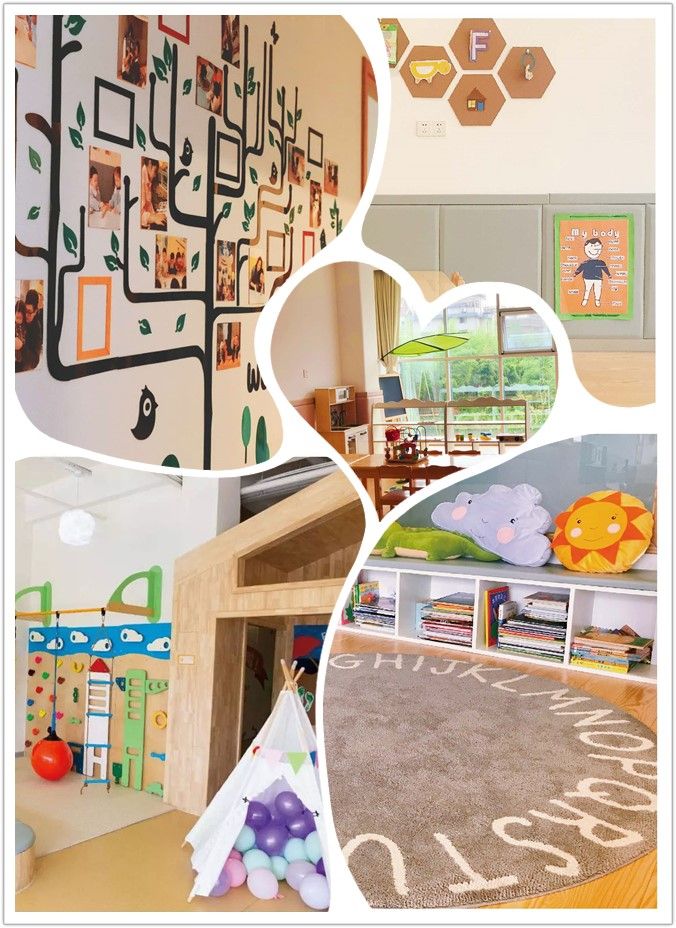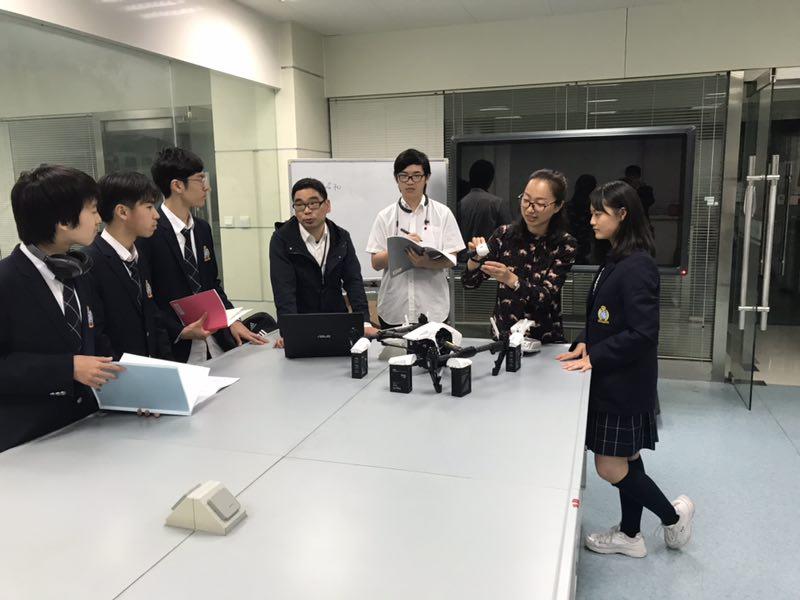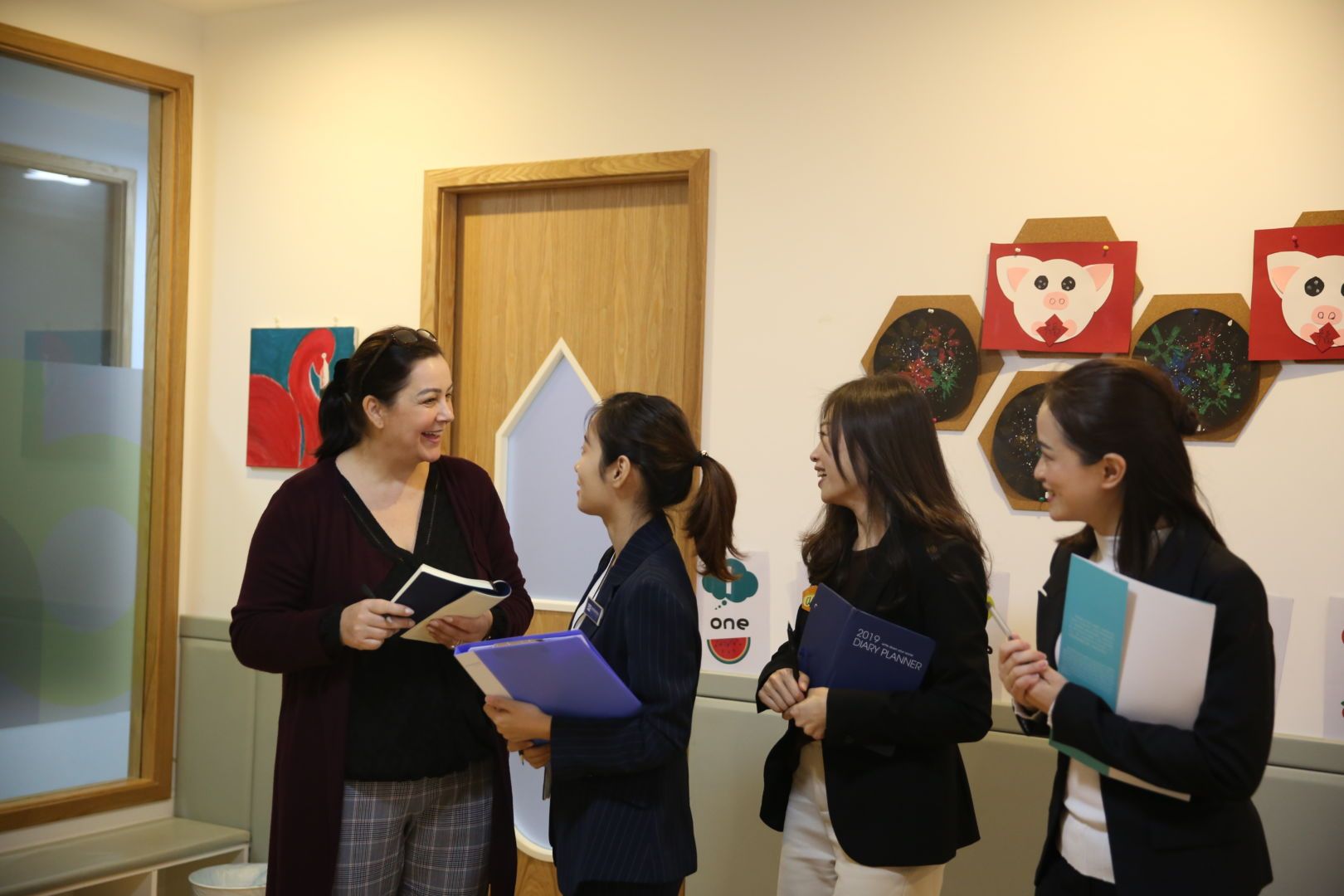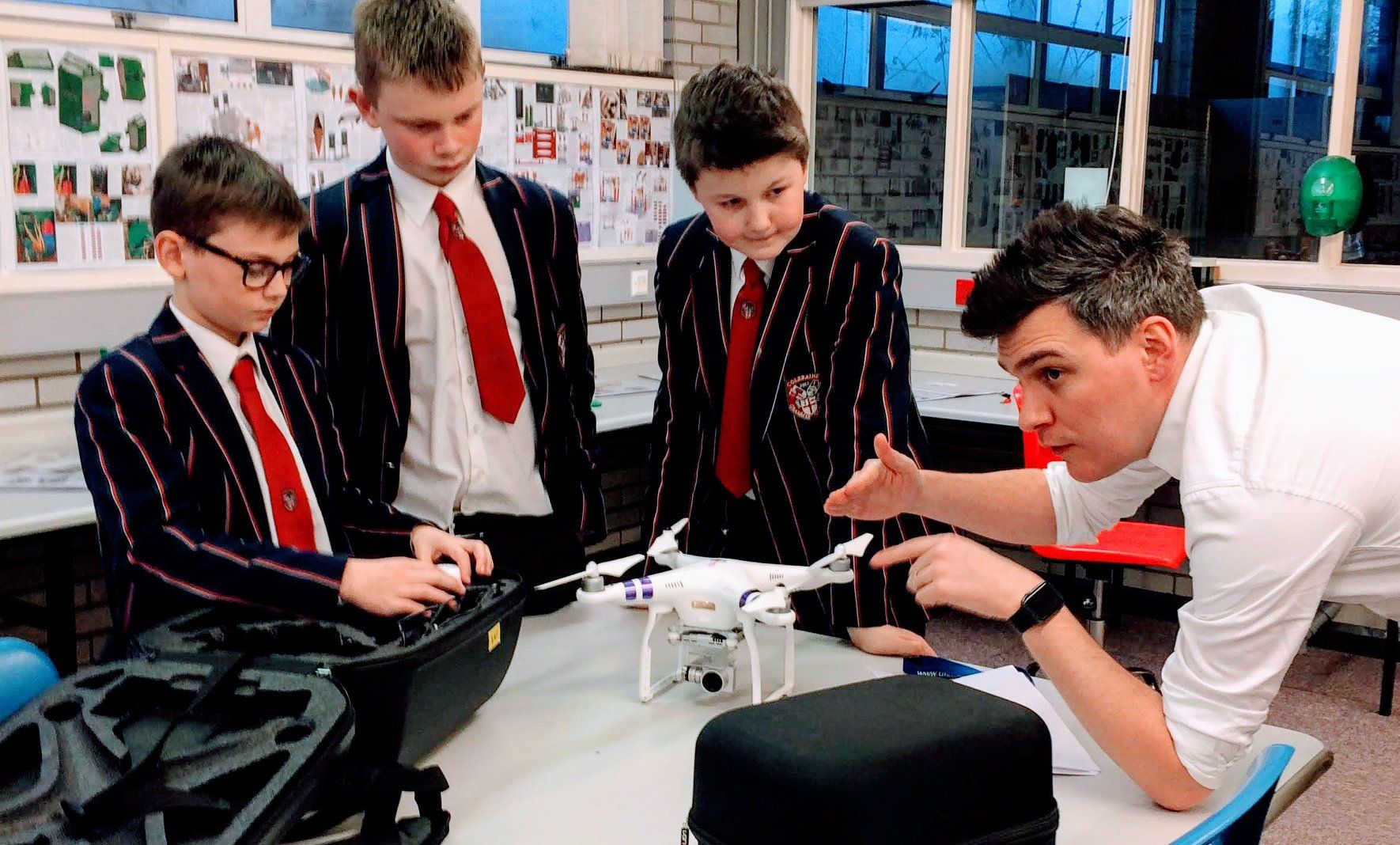Nursery member of the BIEA E-League “Beyond R.” has finished their preliminary EYFS examination and IS expecting more children to benefit from professional EYFS education
The British International Education Association (BIEA) Early Years League (E-League) was launched in November 2018. The aim is to provide the best British early years education (Early Years Foundation Stage) training and resources for international education practitioners so that children and their parents could benefit from a British educational experience. The following month the child care institution Beyond R. submitted their applications for gaining EYFS accreditation and nursery membership to the BIEA E-League Committee. Since January 2019 Beyond R. has become a member of the E-League nursery member via the qualification examination of BIEA E-League UK Committee. In March Sharron Fogarty, Head of E-League, visited the nursery to complete the preliminary examination on behalf of the BIEA.
 Located in Hangzhou, known as the paradise on earth, Beyond R. is a high-end childcare institution advocating British international education. Since its opening two years ago, the school has always adhered to the educational tenet of "the best choice for parents and the best start for children" outlined in the British EYFS. Under the guidance of EYFS, the school has also offered courses such as picture books, art and outdoor practice classes. The experience as a two years EYFS childcare institution, Beyond R. is eager to work towards the goal on how to improve the quality of the institution's EYFS teaching , and hope to get more professional guidance from BIEA E-League, striving to provide better education based on the current schooling philosophy and incorporate with the seven learning objectives and teaching circles outlined in EYFS.
Located in Hangzhou, known as the paradise on earth, Beyond R. is a high-end childcare institution advocating British international education. Since its opening two years ago, the school has always adhered to the educational tenet of "the best choice for parents and the best start for children" outlined in the British EYFS. Under the guidance of EYFS, the school has also offered courses such as picture books, art and outdoor practice classes. The experience as a two years EYFS childcare institution, Beyond R. is eager to work towards the goal on how to improve the quality of the institution's EYFS teaching , and hope to get more professional guidance from BIEA E-League, striving to provide better education based on the current schooling philosophy and incorporate with the seven learning objectives and teaching circles outlined in EYFS.
 After making the examination of the EYFS nursery Ms Fogarty concluded that Beyond R. not only has a high recognition of the British concept of early years education but also has a clear understanding of the aims of British EYFS. Although the organisation has encountered some difficulties in initiating the EYFS teaching cycle and promoting the realisation of EYFS goals in several areas, the E-League Committee believes that with the support of the E-League's comprehensive British educational resources, Beyond R. will become an excellent nursery with all the characteristics EYFS schools have in the UK.
After making the examination of the EYFS nursery Ms Fogarty concluded that Beyond R. not only has a high recognition of the British concept of early years education but also has a clear understanding of the aims of British EYFS. Although the organisation has encountered some difficulties in initiating the EYFS teaching cycle and promoting the realisation of EYFS goals in several areas, the E-League Committee believes that with the support of the E-League's comprehensive British educational resources, Beyond R. will become an excellent nursery with all the characteristics EYFS schools have in the UK.
The British EYFS has always been a highly praised early years education system throughout the world and the emerging international education market represented by China is in favour of such an EYFS system. However, how to introduce a purely British EYFS into nurseries is a difficult problem for many private early years education institutions in China. BIEA is a British local educational institution supported by the UK Department of International Trade (DIT) and other British institutions. E-League brings together the UK's high-quality educational resources and UK EYFS experts. It has the ability and the advantages to provide the most comprehensive and professional EYFS teaching guidance for the members of the alliance.
The BIEA E-League Committee will assist the organisation to make more professional and comprehensive EYFS teaching while maintaining its original characteristics through teacher training, British research, providing guidance, teaching courses related support.
BIEA believes that combining the school-running philosophy of Beyond R. "Looking at the World with the Eye of Discovery" with the comprehensive British educational resources of E-League, a broader EYFS teaching world is found, delivering better international learning courses for children in the League and bring parents a better experience of international homeland co-education!
45 Teams from 18 countries and regions advance to BIEA 2019 International STEM Competition
Students from Coleraine Grammar School in Northern Ireland, UK learn how to fly a drone with Alan Hook, Associate Head of School (Media) at Ulster University, Coleraine.
Early today, British International Education Association (BIEA) in association with Born Free Foundation announced the shortlist for 2019 BIEA International STEM Youth Innovation Competition.
Since the launch in January 2019, there has been huge interest from schools and teachers from around the world. With the competition reaching 30,000 schools globally, drawing applications from 34 countries and regions through the support of its partnership. After an intensive and rigorous marking process, 45 teams are through to the next round based on their qualification scores, representing 18 countries and regions including UK, China, USA, Australia, Canada, India, Kenya and many others.
Each year a theme connecting world issues and technology is chosen for the competition, which will be announced in January and the finals will be held in July. This year’s theme is “Fighting Extinction via Drone Technology”. Teams are asked to come up with a drone design to aid in the conservation of endangered species, and projects submitted in the first round focused on an enormous variety of endangered animals, including snow leopards, black rhinos, pangolins, turtles, elephants and many more.
In the next round, qualifying teams will modify/build a drone to reflect their report design ideas as laid down in the first round within a fixed budget. They are required to submit two videos by 4th June, one to demonstrate their drone in action and able to complete a set of tasks, a second video to visually present an outline of their project to date. In the meantime, BIEA STEM Ambassadors will visit shortlisted teams and support their innovation projects.
Upon successful submission of the videos, teams are invited to come to the international final at the London Royal Air Force Museum on 4th July, with a public showcase of their projects and presenting to a panel of expert judges. A grand prize of £5,000 is waiting for the top team, a variety of other prizes across the age categories will be awarded to participating teams.


Teacher and students from No. 2 High School Attached to East China Normal University in Shanghai, explore components of drone as part of their investigative report.
About the competition
The annual BIEA International STEM Youth Innovation Competition is BIEA’s flagship programme designed to encourage students to pursue study and careers in science, technology, engineering, and math (STEM). It presents a unique opportunity to motivate the next generation of leaders who will change the way we explore and connect in the world. One theme is chosen each year to reflect the pressing issues and challenges in today’s world and how technology could be used to in solving these challenges. The competition spans three age ranges: 9-11, 12-14 and 15-17. Entry teams are made up of 3-5 students supported by a teacher, where teamwork is an important component of the competition. There are five main components to the competition: report writing, innovation, presentation, Dragon’s Den style pitching and fixed tasks.
BIEA promotes friendly competition among teams from diverse socio-economic backgrounds, ethnicities, and geographies – from emerging towns in Nigeria to historical capital city of China. Numerous teams are engaging in fundraising campaigns in their communities to make their participation this year possible.
Quotes
“The overall quality of the reports was astounding, more so when we consider that many young people were submitting reports in a second language. In some cases, the standards of secondary research and innovative experimental investigations to gather primary data for drone specifications were worthy of undergraduates rather than secondary school students.”
Dr Alex Holmes, Lead Competition Judge
“BIEA aims to bring together educators and young people of all ages from around the world who share a passion for Science, Technology, Engineering and Mathematics (STEM). We hope our chosen topic will not only illustrate to the audience the importance of technological innovation when it comes to environmental protection, but also inspire the next generation of STEM graduates to put their minds to solving these pressing world issues”.
David Hanson, STEM Chairman, BIEA
“Wildlife is coming under increasing threat from human actions so Born Free is thrilled to be partnering with BIEA on this competition. It’s a chance to help the next generation understand the real-world application of STEM skills. How we can effectively use technology to protect and monitor wildlife populations could be the difference between extinction and survival for some of the world’s most threatened species.”
Laura Gosset, Head of Education, Born Free.
Follow and support your local team on the road to the International Finals using the official hashtag: #BIEACompetition
For more information about the BIEA International STEM Innovation Competition and to view the complete list of shortlist teams, visit our site: www.bieacompetition.org.uk/announcement, or follow BIEA @BIEAeducation on Twitter.
BIEA Grants Membership Certificate of E-League to Shanghai Duimohn Bilingual Children's Education School
Ms. Sharron Fogarty Head of Early Years at the British International Education Association (BIEA) attended the opening ceremony of the Duimohn Bilingual Children's Education School in Shanghai on March the 23rd. There she was pleased to issue a certificate of membership of the BIEA E-League to the Duimohn school.
Ms Fogarty was invited to the opening ceremony by the Duimohn School leader Maggie. Ms Fogarty, as a representative of the BIEA E-League, along with other guests and parents witnessed the beginning of a new chapter of British EYFS education in China with the opening of the school in Shanghai.
As the main support content of BIEA and BIEA Early Years League (E-League), the Early Years Foundation Stage (EYFS) is the provider of the British early years basic education practice. It supplies the members of the alliance with expert guidance, comprehensive EYFS teacher training, access to British research along with EYFS certification and other forms of early years educational support. As a member of the BIEA E-League, Duimohn Bilingual School will enjoy all the rights and interests of other BIEA British educational institutions whilst gaining the support of E-League British early YEARS educational resources.
As a representative of the BIEA E-League committee, Ms Fogarty gave a speech outlining the educational philosophy and aims of the BIEA E-League to the assembled guests and parents.
Director Fogarty said that EYFS, as one of the best early years education systems in the world, is following the four principles of "respecting a child’s personality, promoting positive relationships and providing and enabling the educational environment to promote the learning and development of children". Since its implementation in nurseries, schools and nurseries in the UK EYFS has been enthusiastically praised by parents and highly recommended by the international early education community. Ms Fogarty also gave a detailed introduction to the methods of the EYFS in bringing up children in a favourable learning environment and the positive conclusions resulting.
A clearer understanding of the goals of the EYFS and an explanation of its wider aims was greatly appreciated by the audience who gave enthusiastic applause to Ms Fogarty’s speech.
As living standards rise along with higher incomes in China, the demand for good and comprehensive early years education has created a booming market in that area. The unprecedented opportunities for development has provoked interest from many leading international educational groups. As one of the world's most authoritative standards for early years education, the British EYFS has attracted more and more attention from Chinese parents and early years professionals.
With the opening of a Chinese Bilingual school for children and its preliminary favourable evaluation by the BIEA E-League committee, the British EYFS bilingual system has been successfully introduced. A successful and comprehensive early years bilingual education, to provide a wider international and cultural interest in the young, has now been made available for the children in Shanghai.
Duimohn Bilingual Children's School will uphold the characteristics of EYFS as practiced in the UK and will provide music and art lessons, sport activities, picture book reading and basic understanding courses according to the EYFS programme. The target group is children up to the age of six. Classes will be held with the parent up to the age of three and from then on independently all carried out in a comprehensive and where possible, bilingual manner.
There is no doubt that the concept of international education has been enthusiastically welcomed and sought by more and more parents.
BIEA believes that under its guidance the Duimohn bilingual children’s school, and with the supervision of the introduction of the EYFS by the committee of the BIEA E-League, that the school will become a shining example of an international nursery amongst the many operating in Shanghai and contribute to the enthusiasm and growth to the internationalisation of China’s early years education programmes.
The second phase of EYFS training has been successfully completed
The second phase of BIEA E-league EYFS training was concluded and understood sooner than the lecturers had expected. The four-day EYFS teaching course integrating theoretical knowledge with teaching cases, classroom practice and other methods of learning not only lays down a solid foundation for the teachers participating but also broadens their framework for practice. The core of the course not only made the teaching atmosphere pleasant but was praised by all afterwards. Now let us explain the content of the four-day EYFS teaching course.
I. Essentials of EYFS Cycle
EYFS observation
Understanding the different types of observation records (including methods of key observation, closed and open data observation, shorthand, the "wow" moment, checklist, time sampling as well as event sampling etc.).
When making observation records, the most suitable method will be selected according to the situation at the time.
When EYFS observation is connected with EYFS learning development goals, we can record children's early years learning and development goals in the EYFS programme document.
EYFS evaluation
Understand the different types of EYFS evaluation (first evaluation, progress review, two-year-old progress check and EYFS portfolio) and the differences in content performance of each type of evaluation.
Learn to judge what developmental state a child is in (starting or more secure).
EYFS plan
Grasp when the entry point of the next step in the plan occurs and understand the key points of the different types of plan formulation through observation, recording and evaluation (e.g. long-term plan emphasises extensive overview, medium-term plan emphasises more details, short-term plan emphasises more specific details, etc.).
Master the idea of formulating the theme plan and learn how to apply the idea of the EYFS theme plan to other, differing theme plans.
2. Misunderstandings in teaching that should be avoided
Participants asked how to distinguish the roles of key people such as teachers and assistants in the observation records?
The lecturer, Sharron, explained that the key person is mainly responsible for collecting observational records whilst the assistant is responsible for assisting in collating those observational records. In most nurseries a teacher is the key person.
Students asked how would children behave when being videoed or photographed for observation purposes? Would they be distracted or behave differently? How can they deal with such a situation?
Sharron explained that nurseries in Britain face a similar problem and teachers will ask for the children's consent before they take a video or photograph. The children are not too curious about that behavior from the teacher. Video and photography are an excellent and convenient means of sharing children’s development with their parents as well as understanding the child’s needs.
3. Understanding British nurseries teaching aids
In addition to the training of teaching content, local teaching aids suppliers from the BIEA member marketplace also attended the training classes to demonstrate the teaching aid products popular in nurseries in the UK; some of which astonished those present.
4.Obtaining British CPD Certificate
At the end of the three-day course, the BIEA E-League issued the British Continuing Professional Development (CPD) Certificate for the teachers who participated in the training. The certificate was approved by the British CPD Certification Authority which is valid that the teachers have received systematic EYFS teaching training.
The vocational training system in British education is very mature. The professionals and teachers involved in Britain’s educational system have to accumulate a certain amount of hours of vocational training yearly to ensure that they remain at their professional level.
5. Teacher's Evaluation
The teachers who attended the EYFS course delivered by Sharron are confident and eager to put into practice what they have understood and learnt. The third phase of EYFS training will take place on 27 April 2019 in China.












